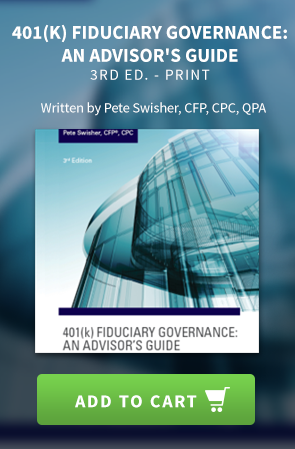State Sponsored Plans
Slowly but surely, states are adopting programs to provide retirement plan coverage to people whose employers do not. The plans that are in place are growing in participation and assets, but what does an industry insider think?
To provide an idea of what a private-sector retirement plan service...
READ MORE
The Connecticut Retirement Security Authority (CRSA) has announced the launch of a pilot of MyCTSavings, the state-run retirement savings program intended to provide coverage for private-sector employees whose employers do not offer them a plan. The pilot is slated to begin in September.
The CRSA...
READ MORE
CalSavers, the retirement plan the state of California provides for employees whose employers do not provide one, showed strong growth in some respects in June but held steady in others.
The CalSavers Retirement Savings Board reports that the number of employer registrations increased at double...
READ MORE
Although the “laboratory” for such analysis is relatively small, and the timeframe for evaluation somewhat limited, there are some early signs to consider.
Industry pundits and policymakers alike have long wondered—and argued—about the impact of state-run automatic IRA programs for private sector...
READ MORE
There is plenty of activity on Capitol Hill, but it comes amid a climate that creates challenges for the retirement industry, noted American Retirement Association CEO Brian Graff in a June 29 general session of the NTSA Summit.
The environment now is very different, remarked Graff. There is a...
READ MORE
Add the Pine Tree State to the growing list of states offering programs to provide coverage to those whose employers do not offer a plan.
Gov. Janet Mills (D) signed the Act To Promote Individual Retirement Savings through a Public-Private Partnership (LD 1622) into law June 24. The legislation, ...
READ MORE
Witnesses testifying before a House panel agreed that more needs to be done to address the current retirement savings coverage gap, but they diverged on what those solutions should entail.
The June 23 hearing, “Examining Pathways to Build a Stronger, More Inclusive Retirement System,” before the...
READ MORE
The Pine Tree State is poised to become the latest state to offer a state-run retirement plan to provide coverage to those whose employers do not offer a plan.
The Maine House of Representatives and Senate both passed LD 1622, An Act To Promote Individual Retirement Savings through a Public-...
READ MORE
CalSavers, the retirement plan the state of California provides for employees whose employers do not provide one, grew like gardens in many areas in April and May. The growth in some respects was a bit more robust than that in March.
The CalSavers Retirement Savings Board reports that the number...
READ MORE
The New York State legislature has taken another big step toward enacting a mandatory auto-IRA program.
The State Senate voted 44-19 on June 7 to approve NY A03213-A, legislation that would convert the existing New York state secure choice auto-IRA saving program from being voluntary to mandatory...
READ MORE
The next deadline for registration with CalSavers, the state-run retirement plan for employees whose employers don’t offer one, is coming soon. Employers with 51-100 employers that do not offer a plan have until June 30 to register.
CalSavers was launched on July 1, 2019. Employers in California...
READ MORE
A measure that would expand the Illinois Secure Choice Savings Program, the state-run retirement plan for workers whose employers do not offer one, awaits the signature of Gov. J. B. Pritzker (D).
Rep. Will Guzzardi (D-Chicago) introduced H.B. 0117 in the House of Representatives on Jan. 13, 2021...
READ MORE
The plaintiffs in the case note that, despite a meticulous detailing of the program, the analysis applied by the appellate court “comes to the wrong conclusion for several reasons, all of which are questions of exceptional importance.”
Case History
The original suit, filed in the U.S. District...
READ MORE
The First State has now entered the push to provide its private sector workers who do not have access to an employer-sponsored retirement plan with access to a state-facilitated retirement plan.
The legislation (HB 205), which was spearheaded by State Treasurer Colleen Davis and introduced May 20...
READ MORE
New York State’s legislature is now looking at making its existing auto-IRA program mandatory.
The state’s General Assembly on May 11 passed NY A03213A by a vote of 125-22 that would make the New York State “secure choice” auto-IRA program mandatory for private sector employers that do not offer...
READ MORE
Legislation establishing a mandatory auto-IRA retirement savings program for private sector entities in the Big Apple has now been signed into law.
New York Mayor Bill de Blasio on May 11 signed the “Retirement Security for All” legislation, establishing a retirement savings program for private...
READ MORE
The 9th U.S. Circuit Court of Appeals on May 6 affirmed a district court ruling that CalSavers, the state-run retirement program that provides coverage for employees whose employers do not offer a retirement plan, is not preempted by ERISA.
The 9th Circuit in Howard Jarvis Taxpayers Association v...
READ MORE
Legislation establishing a retirement savings program for private sector entities in New York City that includes recommendations from the ARA has been sent to the mayor’s desk for his signature.
The New York City Council approved an amended bill (Int. No. 888-A) on April 29 to create a mandatory...
READ MORE
CalSavers, the retirement plan the state of California provides for employees whose employers do not provide one, showed growth in many areas in March. The growth, however, was more modest by some measures than that in February.
The CalSavers Retirement Savings Board reports that the number of...
READ MORE
The next deadline for registering with CalSavers, the state-run retirement plan for employees in California whose employers do not offer a retirement plan, is less than two months away. Employers with 50 or more employees have until June 30, 2021 to register.
“As the California economy recovers...
READ MORE


